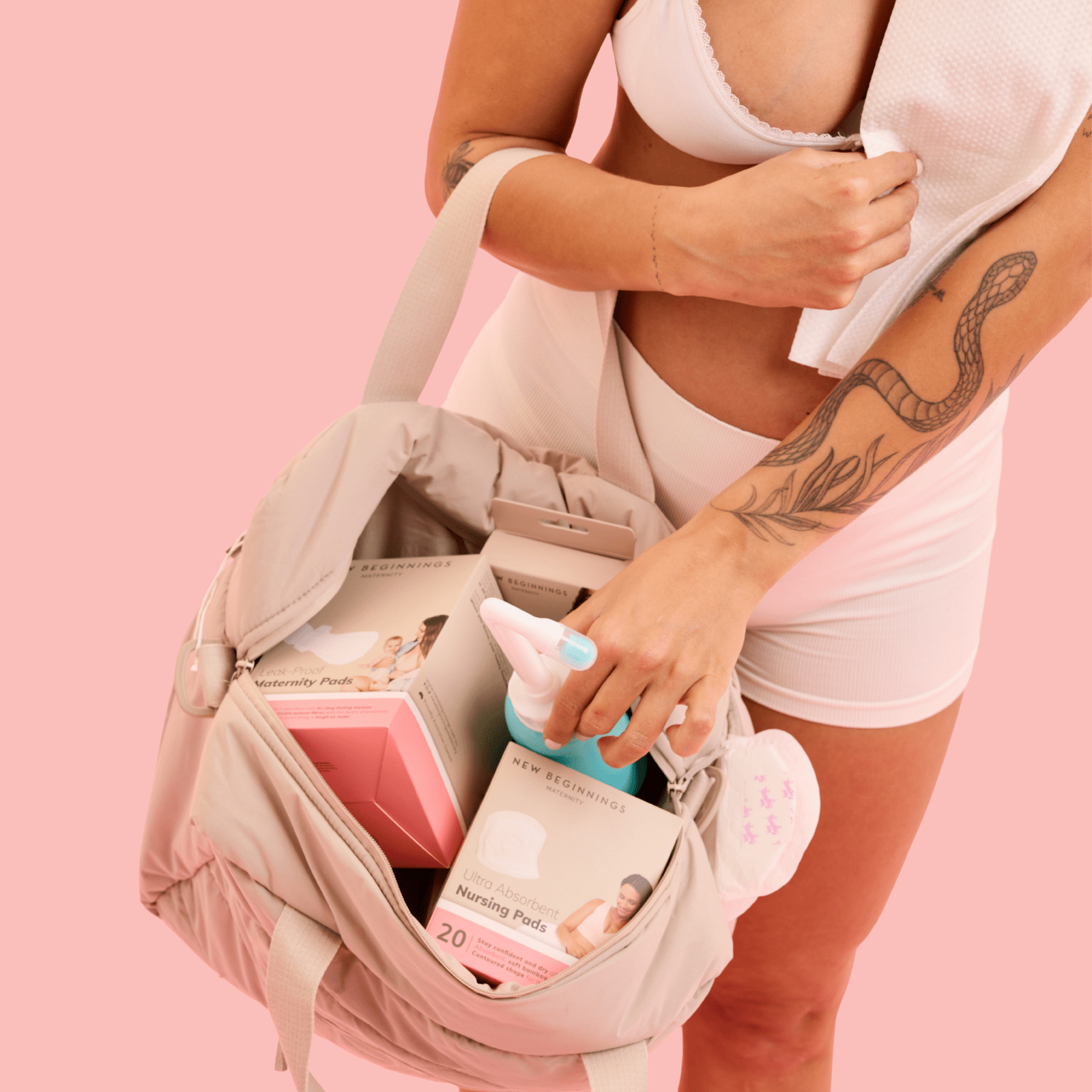Both pregnancy and postpartum are times of profound change for mums with many moments of joy and anticipation. However, this period can also be marked by significant – and often unexpected – struggles, both physical and emotional. And at the core of it all, maternal mental health remains a relatively stigmatised issue. So, why aren’t we talking about it more?
To help shed light on how important it is to speak about mental health during the perinatal period, we sat down with Jennifer Ericksen, Consultant Senior Clinical Psychologist at the Parent-Infant Research Institute (PIRI), Austin Health.
Breaking down stigma and dispelling myths
There’s no universal ‘first step’ in addressing maternal mental health issues. Everyone will have their own process, but a vital part of the process is simply acknowledging these struggles and recognising that seeking help is not a sign of weakness – but rather one of strength. While the cultural landscape is shifting to a more positive mindset around mental health, there’s still work to be done in breaking down barriers to care.
Addressing mental health – from conception to post-partum and beyond
"Talking about mental wellbeing at all stages of the perinatal journey with both partners is important because it sets the scene that mental health is just as important as physical health during this time," says Jennifer. "Untreated depression can affect not only the mother, but those close to her, including her partner and baby. While there is evidence to show that untreated maternal depression and anxiety can influence the baby’s development, it's essential to remember that not all babies are affected, and there are protective factors that can decrease this risk. Babies are remarkably resilient, and early intervention can make a significant difference."
Learn more about adress mental health through R U OK? initiative.
How MumSpace is a place for 24/7 support
MumSpace is a sanctuary of support for expecting and new mothers all around the world. Its stepped-care approach to support is a model that gives parents access to a selection of tools that can help them understand and manage their mental health.
“MumSpace provides a woman-centred approach to health care, giving new mums the opportunity to decide what they need and when,” Jennifer says. “It starts with parental resources that give information and strategies to manage the transition to parenthood, as well as key baby-management issues like sleeping and settling.”
Beyond all the helpful information on MumSpace, there is also an app called MindMum, which is designed for those who need a little extra help in mood regulation throughout the transition to motherhood.
“If a mum is experiencing more challenges or feeling overwhelmed, we have two great programs with strategies to manage perinatal depression and anxiety: MumMoodBooster (postnatal) and Mum2BMoodBooster (antenatal).”
MumSpace is not just a platform – it's a lifeline that connects mothers with the support and resources they need to navigate the challenges of motherhood.
MumMoodBooster is a beacon of hope for Aussie parents
Among the valuable resources offered by MumSpace, MumMoodBooster stands out as a game-changer. Jennifer says the program is modelled on successful evidence-based face-to-face treatment for postnatal depression and anxiety.
“It’s similar to the treatment that would be received if women were to see a psychologist for therapy,” she adds. “It’s very simple to use and is tailored to the issues mums are [dealing with].”
The free program is available 24/7 – ideal for the unpredictable routines that can come with raising a newborn. It includes six online sessions that are entirely interactive, with mums able to work through exercises and then save them in their own ‘workbook’, which can then be downloaded.
For those who are really struggling, Jennifer says the program will point you in the right direction for extra support. “Each session has a welcome video from a coach, and the sessions are supported by motivational SMS messages. There is also an option for women who score above a certain level on the Edinburgh Postnatal Depression Scale to opt for real-life coaching through PANDA.”
DadSpace as a further resource for fathers
Dads also need to be conscious of their own mental health during this time as “up to 1 in 10 new dads also struggle with depression which has been found to have an impact on developmental outcomes for children,” Jennifer says. This is why PIRI have introduced a valuable resource for dads called DadBooster, an online treatment program designed to provide support and guidance. To learn more about this program, please visit www.dadspace.com.au.
Strategies for maintaining positive mental wellbeing
While it’s never an exact science, here are Jennifer’s strategies that expectant and new mothers can try integrating into their daily lives:
● Ask for help: Seek support before you feel overwhelmed. Having planned additional support can make the transition to parenthood less stressful.
● Social connection: Join groups with other mothers. First-time parents’ groups and mother and child health (MCH) nurse groups can provide valuable social connections and support.
● Communicate with your partner: Openly discuss your feelings and needs with your partner or support person. Sharing your thoughts can help you navigate this new chapter together.
● Give yourself time: Adjusting to the demands of parenthood takes time, both for you and your baby. Be patient and allow yourself room for growth.
● Embrace the imperfections: Remember that there is no such thing as a perfect mother. Being ‘good enough’ is all that is necessary for your baby’s wellbeing.
● Seek balance above all else: Maintain balance in your life by setting aside time for yourself, your baby and your partner. Self-care isn’t selfish – it's essential.
There’s a world of supportive tools within your reach
Thanks to platforms like MumSpace and programs like MumMoodBooster, support is now readily available for mums seeking maternal mental health support during the perinatal period. It’s equally important to remember that this isn’t just an ongoing challenge for mums – it’s something that affects the entire family, and even more broadly, our wider community. Together, we can make sure every new beginning is a joyful one and every mental health struggle is met with the support that new parents need.






